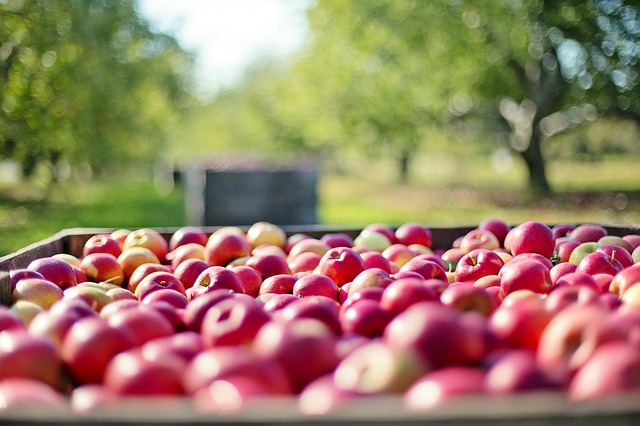June 8, 2022
By Lynda Kiernan-Stone, Global AgInvesting Media
Millennium New Horizons has led an oversubscribed $8 million Series A for Strella Biotechnology, the developer of a proprietary sensor technology designed to reduce food waste and improve quality in the fresh produce supply chain.
Also participating in the round were Google Ventures, Rich Products Ventures, Mark Cuban, Union Labs, and Catapult Ventures and Yamaha Motor Ventures, which are both returning after co-leading an oversubscribed $3.3 million Seed round for the startup in May 2020, in which Mark Cuban and Union Labs also participated.
Headquartered in Seattle, and led by company co-founder and CEO Katherine Sizov, Strella Biotechnology combines novel IoT biosensors with actionable insights to provide the missing data needed for supply chain optimization to maintain maximum freshness for fruit.
We’ve discussed the ramifications and impacts of food waste before, and no matter how often I read the numbers, the stats are always shocking. Estimates by the USDA’s Economic Research Service are that between 30-40 percent, or 80 billion pounds, of food produced in the U.S. is wasted each year.
This wasted food accounts for the most common material present in landfills or material being incinerated, at 24 and 22 percent respectively, according to the report From Farm to Kitchen: The Environmental Impacts of U.S. Food Waste released by the Environmental Protection Agency (EPA) in November 2021.
It also translates to a litany of “wasted” agricultural land, water, inputs, and energy – not to mention the greenhouse gas emissions released in its production and degradation to the environment and biodiversity.
And amid this reality, fresh produce is particularly challenging, with 45 percent – or nearly half – of all produce wasted before it reaches the consumer.
Working to solve this issue, Strella Biotechnology uses proprietary biosensors with Internet-of-Things capabilities to offer a data-driven approach to ensuring fruit quality through all segments of the supply chain. This insight in the form of shelf life predictions, allows produce companies the ability to increase margins and decrease shrink, while also lowering carbon emissions and strengthening their sustainability profile.
“Suppliers, retailers and importers are doing their best to bring high-quality, healthy produce to consumers in the most efficient way possible.However, unlike manufactured foods, there is no accurate expiration date for produce, which makes optimizing inventory a challenge for the industry across the entire supply chain,” said Sizov. “We’re proud to work with such incredible investors to tackle this increasingly urgent problem and support growers and retailers with an end-to-end solution.”
Initial adoption of Strella’s technology has occurred in the apple industry. Jay Jordan, Strella’s co-founder and COO, explained the process in an IBM interview earlier this month.
 “It’s a sensor that sits on the ground in these really big, controlled atmosphere (CA) rooms,” said Jordan. “They’ll put, like, 5 million apples in a room and store them for up to a year, and they do that by removing the oxygen and making them really cold. Our device will sense this gas all year long and send a wireless signal through concrete using IoT networks. So it makes it really easy for our customers to get data. It just comes automatically through the cloud and then enters their inbox.”
“It’s a sensor that sits on the ground in these really big, controlled atmosphere (CA) rooms,” said Jordan. “They’ll put, like, 5 million apples in a room and store them for up to a year, and they do that by removing the oxygen and making them really cold. Our device will sense this gas all year long and send a wireless signal through concrete using IoT networks. So it makes it really easy for our customers to get data. It just comes automatically through the cloud and then enters their inbox.”
Currently Strella is working with nine of the top 11 U.S. apple packers, accounting for approximately 72 percent of the U.S. apple and pear supply, but has its sights set on expanding into avocados, bananas, kiwi, mangoes, tomatoes, and even flowers.
To-date, the startup has monitored more than 2.1 billion pieces of fruit. And with the capital from this round, the startup will continue working toward expanding into additional commodities and through grocery chain rollouts at a national scale.
“More and more retailers are making waste reduction their top priority, with over a dozen of the world’s largest grocers looking to halve food waste by 2030,” said Ray Cheng, partner, Millennium. “By combining molecular biology with data science, Strella is uniquely positioned to solve food waste challenges at scale, as it has already demonstrated with its early customers.”
~ Lynda Kiernan-Stone is editor with GAI Media, and is managing editor and daily contributor for Global AgInvesting’s AgInvesting Weekly News and Agtech Intel News, as well as HighQuest Group’s Unconventional Ag. She can be reached at lkiernan-stone@
*The content put forth by Global AgInvesting News and its parent company HighQuest Partners is intended to be used and must be used for informational purposes only. All information or other material herein is not to be construed as legal, tax, investment, financial, or other advice. Global AgInvesting and HighQuest Partners are not a fiduciary in any manner, and the reader assumes the sole responsibility of evaluating the merits and risks associated with the use of any information or other content on this site.

Let GAI News inform your engagement in the agriculture sector.
GAI News provides crucial and timely news and insight to help you stay ahead of critical agricultural trends through free delivery of two weekly newsletters, Ag Investing Weekly and AgTech Intel.




